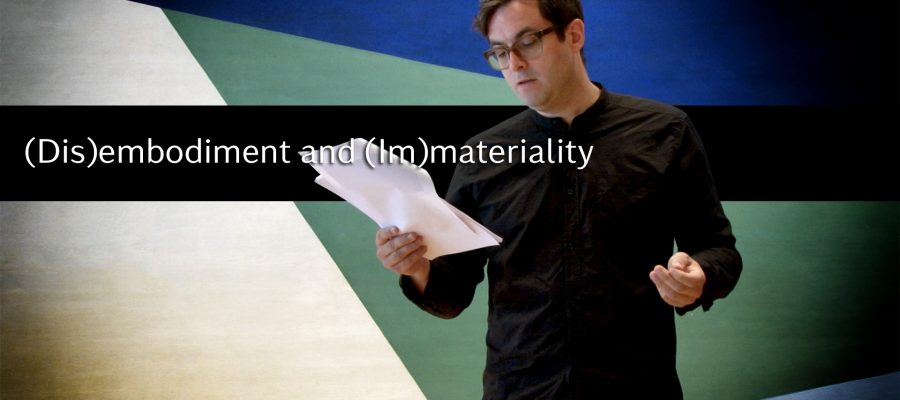(Dis)embodiment and (Im)materiality
Alexander Wilson
This lecture is about current debates in culture, philosophy, and the field of artificial intelligence, about the materiality of mind and intelligence, the functional basis of consciousness, and whether (and if so how) sentience depends on embodiment. In a brief history of the materialist conception of mind, we look at Galileo, Hobbes, Descartes and the conflict between dualism, idealism and materialism. Subsequently, we trace different conceptions of artificial intelligence, Eliminative Materialism and elements of the Simulation Hypothesis. Using a number of examples in recent filmic negotiations of consciousness, such as Fassbinder’s World on a Wire (1973), the Wachowski’s The Matrix (1999), Spike Jonze’s Her (2013), and Alex Garland’s Ex Machina (2015), we question the problem of consciousness in the posthuman condition.
Curriculum
- Turing: Computing Machinery and Intelligence
- Easily accessible online.
- Nagel : “What is it like to be a Bat?”, The Philosophical Review
Vol. 83, No. 4 (Oct., 1974), pp. 435-450- http://www.jstor.org/stable/2183914?seq=1#page_scan_tab_contents
Optional
- Paul Churchland: “Consciousness and the introspection of ‘qualitative simples’”, eidos n°15 (2011), pp. 12-47
- Should be easy enough to find through university libraries
Assignment
- Students must find one cultural artefact (artwork, film, news event etc.), that has not been discussed in the lecture or readings and that intersects the ideas introduced in the module. The students will post an entry to the blog which includes a media element (image, sound, video) relating to this item as well as a 200-300 word written entry explaining how the item thematically or conceptually connect to the module’s topic, making explicit references to the readings and lecture. Add at least two tags to your post (themes, authors, artists etc.). Complete the assignment before Tuesday, November 15th.
